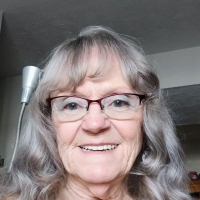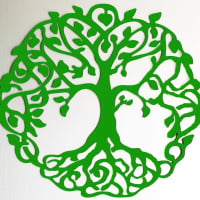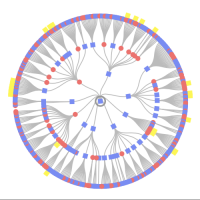Adding unconnected people to Family Search
Should we be taking random names off of the census records and just adding them to Family Search. We have a patron that feels these people need to be found and is randomly putting these names into Family Search.
If (the) patron takes the names off the 1900 census, how will they remember who was put into the system when the 1920 census comes along ? Theoretically the same person could be put into the system many times over causing many duplicates.
We are reluctant to tell the patron not to do it. If it doesn't cause a problem should the patron just continue to do it ??
Thank you
Best Answers
-
IMO, I think just pulling names off a census record and creating a FamilySearch PID in mass without verifying they are not already in the tree or connecting to the tree is irresponsible.
2 -
A decade ago, Family Tree was "seeded" with similarly disjointed, index-based profiles or tree twiglets that had been entered into previous systems. We're still trying to clean them up, and there's no end in sight.
Please tell this person to stop wasting everyone's time and energy like this. If he/she feels that people "need to be found", he/she should explore indexing. That's how people are made findable, without creating unnecessary extra work in the form of duplicate profiles in the Tree.
2 -
Sorry I can't provide any finer detail, but many Community members have complained about it. I believe this has been set-up by BYU as a volunteer project, of which they are keen to attract more participants.
For some reason, FamilySearch appears quite happy for this project to continue, in spite of it having led to a huge amount of duplicates in Family Tree. I believe the intentions were good (as with your example) but there seem to be serious flaws in the process of checking whether IDs have already been created for these individuals.
1
Answers
-
Thank you for your opinion. I feel the same.
0 -
I totally agree it does waste a great deal of time ..for Family Search as well as for the patron. Time would be better spent indexing.
Thank you for your input.
0 -
Surprised nobody mentioned the multi-duplicate-creating BYU 1910 census project.
1 -
I am not aware of that project myself. Would you be willing to explain it or let me know where to gain information about it.
Thank you
0 -
@Sharon Patricia Rickard , see https://community.familysearch.org/en/discussion/88094/us1910project#latest . I don't think I've run into records that had been created by that particular project myself.
I will say that I have had some success finding maybe-relative names in the 1930 Mexican census for the same small town as the lines I'm working on, finding at least one other source before creating an unconnected family based on them, and then working backwards to an intersection, merging a lot of IGI duplicates along the way. But "randomly putting these names" sounds suspiciously like an "unapproved extraction project".
1 -
I have spent--and continue to spend--countless hours that could be used more productively because I stop to clean up the duplication mess created by user US1910Project. The number one complaint I hear from people who do excellent genealogy research (many of them professionals) is that FamilyTree is an unreliable mess. That assessment is unfair. However, if someone is indexing straight from a census record, then that person (or group, project, community--whatever) is NOT RESEARCHING, and what is being contributed is not reliable. Please, FamilySearch, make it stop!
0 -
How about gently redirecting the patron to do the fairly simple steps needed to check for the family already in Family Tree, if it is there? Frame this as saving themself the unnecessary work of creating new profiles followed by the additional work of merging duplicate profiles.
0 -
In defence of the BYU projects mentioned by @Paul W I would say that there are two stages to the project. The first is the creation of new records from a census. By itself I agree this would be wrong. The second is for volunteers to go in and clean up the records - looking for duplicates, adding marriages and maiden names of mothers and linking other sources such as other census records.
1 -
@Graham Buckell, just thinking out loud, if you don't create a problem you don't have to clean it up...in other words the project creates problems. Just skip directly to phase two.
3 -
I struggle to come to terms with the actions of those who randomly add names found in a census and other records. The name of this programme is FamilySearch, Family Tree, and we are endeavouring to do Family History. Why just add loose names that aren't attached anywhere or are not part of your family?
0 -
To a large extent I am in agreement - especially in connection with adding names from the census. However, if you are speaking generally, I add lots of names of those of whom I have no, known relationship.
Firstly, filling their detail with sources and notes helps me / others differentiate between them and individuals of similar identity.
Secondly, having pretty well come to a dead-end in tracing my own family branches, why should I not spend some of my spare time in adding names whose addition might prove of great value to others?
I'm sorry if you are just talking about names that are completely unconnected to any other ID in Family Tree (although even they might have some use in the long-term), but adding names of unrelated individuals is an important part of my work - both for identification purposes and in my wanting to help others trace their relatives.
1 -
After viewing a YouTube clip on the BYU project, I was impressed by its original purpose and potential usefulness. However, it has not / is not working in line with its purported aims, according to the many users who are constantly finding the "follow-through" / tidying-up part is not being carried out properly. This means a continuation of more and more duplicates being added, including women who remain with their married names.
My agreement, with many others, to stop the project is based on a perceived lack of supervision and control, which is apparently leading to as much damage as any positive results that might have been achieved to date.
1 -
Oh my, not the best methodology IMO.
BYU 1910 US Census Project instruction video
0 -
Watching the video confirmed my impression that the process used in the project is largely mechanical and very quick and dirty, not meticulous. For example, there is no concern for whether FamilySearch has picked a correct standard place name. Incorrect standard place names have been present in many of the project's duplicate profiles that I have fixed in the course of my own work.
To be fair, the fault for creating duplicate profiles does not lie all in the project. FamilySearch often fails to find households already in Family Tree but the reason for that usually is sloppy work by other contributors.
I am deeply saddened to witness a university engaged in training menial piece workers when it could be training skilled genealogy researchers.
0 -
I cannot speak for the 1910 US Census Project but I have been involved in the similar 1911 UK census project. Around 150 volunteers both in the UK and the US have been trained to deal with these. All records are listed in a master spreadsheet to ensure all are dealt with. Also all records are checked by an experienced reviewer.
0 -
The 1910 US Census Project appears not to have experienced reviewers in the pipeline, or at least not enough of them. I've been fixing profiles years after 1910 US Census Project touched them last.
1





